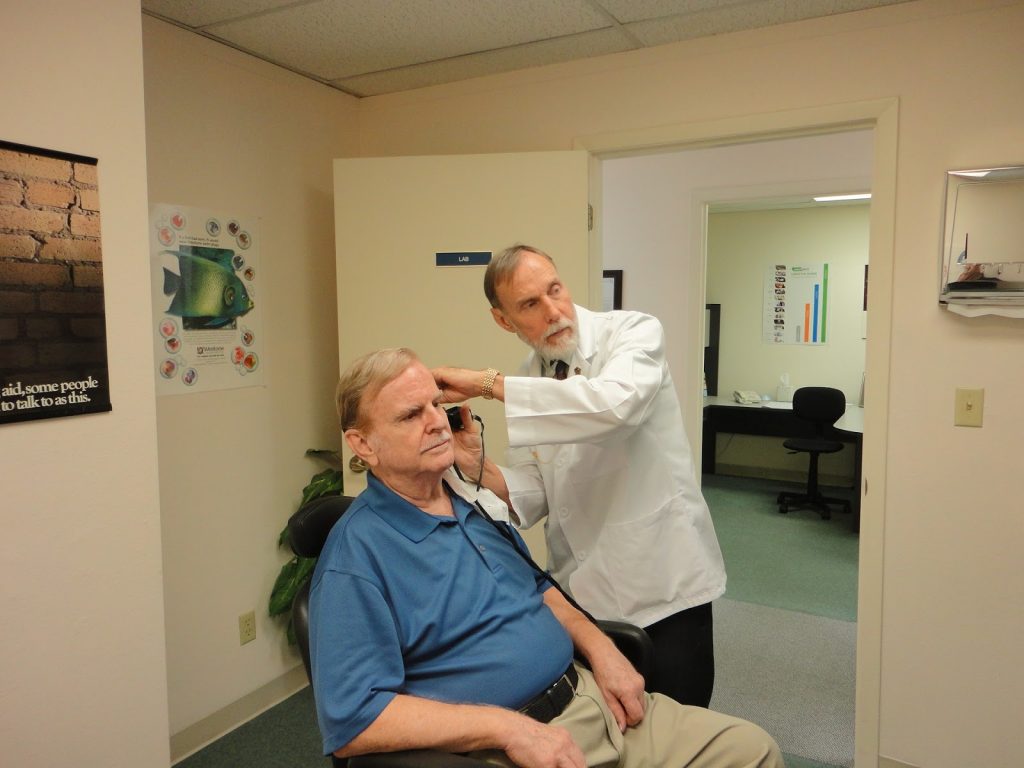The healthcare industry is one of the fastest-growing job sectors. Projections indicate an increase of four million healthcare jobs by 2026. Graduates with healthcare training can anticipate both entry-level openings and opportunities for advancement in their field.
Healthcare professionals earn strong salaries and there are opportunities for individuals with advanced degrees, as well as those with associate’s degrees. Those thinking about working in this industry should explore these career options.
Audiologist
To become an audiologist you must earn a doctoral degree in audiology after completing a bachelor’s degree. The reward for 8 years of postsecondary study is a median salary of $75,920 as of May 2018, per the Bureau of Labor Statistics (BLS). This field has a much faster job growth rate than the average job growth rate for all careers, in part due to the aging population. Audiologists specialize in hearing issues.
Audiologists evaluate patients to identify the source of the problem and determine how to treat it. They prescribe hearing aids. They may help patients and their families adapt to other forms of communication if the patient has permanent hearing loss. They also work with those who have balance issues.
Nursing
Nurses typically work under the direction of physicians or physician’s assistants to provide care for patients. They may perform administrative tasks, such as documenting a patient’s symptoms and updating their chart. They may also assist with medical procedures. Licensed practical nurses (LPNs) and licensed vocational nurses can complete their training in as little as one year. According to the BLS LPNs and LVSs earned median incomes of over $46,000 as of 2018. Registered nurses (RNs) enjoyed median salaries of $71,730 as of 2018. RNs typically earn a bachelor’s degree before entering the field, although it’s possible to become an RN with a diploma earned in two years. All nurses must be licensed, and they typically must maintain their basic life support (BLS) certification, as well as ACLS PALS certifications.
Radiologic And MRI Technologists
With two years of postsecondary study, you can be prepared for a career as a radiologic technologist or a magnetic resonance imaging (MRI) technologist. As of 2018, the BLS reported median annual incomes of $59,520 and $71,670 for radiologic and MRI technologists, respectively. It’s common for those entering this field to start off as radiologic technologists and advance to a career as an MRI technologist.
They complete diagnostic tests on patients using specific medical equipment. Part of their job involves preparing the patient. This means positioning them so that the right part of the body can be imaged. They also provide equipment to shield other parts of the patient’s body to protect them from exposure.
Occupational Therapy Assistant
Opportunities for occupational therapy assistants will increase by 33% from 2018 to 2028. Occupational therapy assistants follow the directions of an occupational therapist. They guide patients through exercise routines and educate patients about different types of assistive equipment so that the patient understands how the equipment works and how to use it properly.
Occupational therapy assistants take notes about the patients’ progress as well. As of 2018, the median annual income for these professionals was $60,220. To enter this field you need to attend a recognized occupational therapy assistant program and earn an associate’s degree, which can be obtained with two years of postsecondary study.
Dental Hygienist
Dental hygienists are enjoying solid job growth. They are required to have an associate’s degree in their field, which means they can train for their careers in two years. Dental hygienists work under the supervision and direction of a dentist. Their role involves evaluation, treatment, and education. They will inspect a patient’s mouth to look for signs of gum disease or other issues.
They may also take x-rays. Dental hygienists also perform preventative care by cleaning teeth and removing tartar. In some states, it’s possible for dental hygienists to complete extra training and advance to the role of a dental therapist. Dental therapists are qualified to remove teeth and install crowns.

